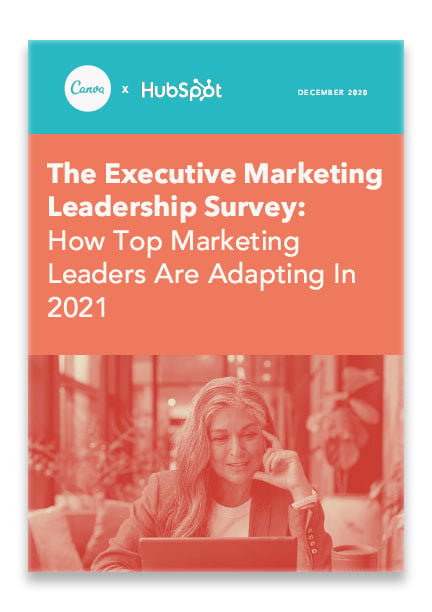In 2020, most B2B marketers had to switch gears and completely re-invent their marketing plans, shifting the focus to supporting their customers in a time of need and moving in-person initiatives to virtual. Now, almost a year into the pandemic, we’re realizing that a lot of the changes wrought by Covid may be more permanent, both from a marketing and a personal perspective.
The experts at HubSpot have put together a report on the key trends that will shape marketing in 2021. It’s no surprise that most of them are driven by the pandemic, but the good news is that in 2021 marketing will be able to move on from the ‘panic pivot’ of last year to more thoughtful and strategic marketing approaches that reflect our changed world, and the altered needs of our audiences.
Here’s a look at three of the key trends that will impact B2B marketing in 2021:
Virtual events will evolve into virtual experiences and online communities.
Last year, marketers had to scramble to switch trade shows, conferences, seminars and other in-person events to online versions. In a lot of cases, they based their virtual event on the old format, which didn’t lead to a lot of engagement. People quickly became tired of such virtual events, and we started hearing about things like Zoom fatigue and virtual overload. The isolation of the pandemic, restrictions on normal activities and less-than inspiring online events all had the same effect: disengagement.
Today, more than ever, people want to feel a sense of connection, which listening to a one-way presentation on a screen just can’t deliver. In 2021, we’ll see a shift to more virtual experiences, instead of virtual events. Smaller, more interactive sessions where everyone participates, sharing information and insights, can offer connection and community much more effectively. Organizations that enable these types of experiences, and help to build communities for their audiences will be ahead when it comes to building loyalty and engagement.
Websites will continue the shift from static information pages to fully interactive experiences.
Whether it’s a corporate website or a dedicated event URL, visitors should feel like they’ve entered a whole new world when they access your site. Live streams, video to watch on-demand, easy access to other users to chat with and quick connections to your product teams will make your site an interesting and engaging destination for your audiences. It’s all about enabling connections, with other users or your company. And part of it is about entertainment – even though your goal is to provide information that is of value to your audiences, these days a lot of people are turned off by the amount of time they have to spend online, so it doesn’t hurt to make the time they spend with you more enjoyable. Think of it as an event that runs 24/7, with elements to draw people in and help them make connections with your products, your company and your employees.
Hyper-personalization will deliver greater impact.
The more you can tailor your outreach to your contacts, the more impact you’ll have. Advances in marketing automation, machine learning and AI are enabling hyper-personalized touches at all stages in the funnel. Combine that with the hyper-segmentation of your database, and you can deliver content and messaging that really resonates with a target’s situation and needs. Hyper-personalize the virtual experiences you provide, the printed mailers you send, and the educational materials you offer, to build a trusted and valuable connection with your audiences.
Another development, according to the experts at HubSpot, was a reduction in marketing budgets for many organizations in 2020. These cuts are expected to continue in 2021 – again, no surprise there. On the other hand, many organizations are putting more of their remaining budgets into digital activities, with marketers across different industries planning to boost digital budgets by 25% or more, for 2021.
Want to learn more about how top marketing leaders are responding to today’s challenges?
Download “The Executive Marketing Leadership Survey: How Top Marketing Leaders Are Adapting In 2021”, for more examples, insights and practical tips. HubSpot surveyed 500 marketers, and summarized the findings in this 20-page report. If you’d like to talk with the experts at Living Stone about your marketing challenges, we’d be glad to set up a no-obligation web call. To find out more, contact Anne-Mie, or call at +32 (0)55 59 10 01.
If you’d like to talk with the experts at Living Stone about your marketing challenges, we’d be glad to set up a no-obligation web call. To find out more, contact Anne-Mie, or call at +32 (0)55 59 10 01.



.png?width=1080&name=Rebranding%20LS-3-Profile%20pic%20(1).png)